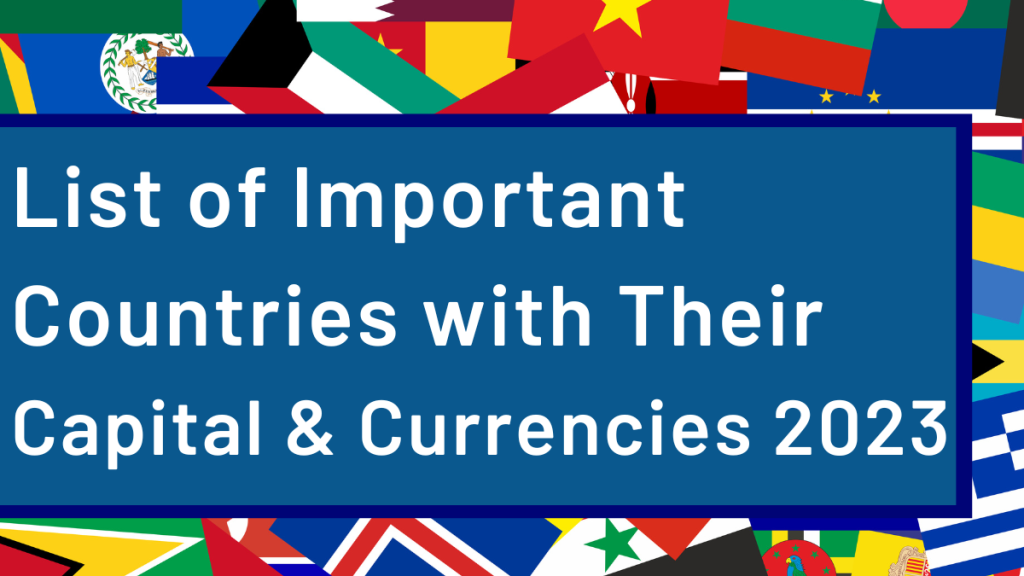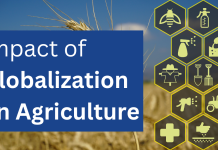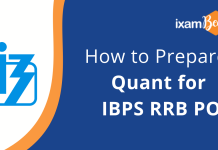Navigating the geopolitical landscape, the world unfolds as a tapestry of nations, each with its distinct identity and role on the global stage. Officially, there are 195 countries, with 193 holding the coveted status of United Nations member states, signifying their active participation in international affairs. However, the narrative extends beyond this numerical count, with two entities, the Holy See and the State of Palestine, classified as observer states. These non-member participants contribute to diplomatic dialogues while standing outside the traditional UN membership framework.
Delving deeper into the global mosaic, the count extends to 249 when dependent territories and self-declared nations are included, showcasing the diverse spectrum of political entities shaping the world. This nuanced perspective recognizes the complexities and intricacies of international relations, where geopolitical boundaries are not always strictly delineated. As we navigate this rich tapestry, seven continents emerge as the foundational pillars of Earth’s geography—Asia, Africa, Europe, Australia, North America, South America, and Antarctica. Each continent carries its own narrative, blending history, culture, and geography, contributing to the collective tale of our planet’s diversity and interconnectedness. Together, these continents and nations form a complex web of relationships, underscoring the importance of diplomacy, cooperation, and understanding on the global stage.
As part of ixambee’s Static G.K series, this article is a comprehensive guide, presenting a List of Important Countries, their Capitals, and Currencies. Whether you are a banking aspirant or someone keen on enhancing your general knowledge, this resource aims to equip you with the foundational understanding needed to navigate the global dynamics efficiently.

Relevance of Country Capitals and Currencies in Bank Exams
In various bank exams, a fundamental understanding of countries worldwide and their currencies is crucial, particularly in the General Awareness section. This knowledge falls under the Static G.K category, specifically focusing on countries, capitals, and respective currencies. This aspect is significant in competitive exams like SBI Clerk, SBI PO, IBPS Clerk, RBI Assistant, and IBPS RRB Officer. Questions in this section, often valued at 2 to 3 marks, aim to assess candidates’ awareness of the global geopolitical landscape. Acknowledging this significance, aspirants need to grasp the basics of international currencies and geopolitical details to excel in these exams.
Given the competitiveness of these exams, even a single mark can make a substantial difference, emphasizing the importance of acing this section. The questions often revolve around countries that are currently in the news, highlighting the symbiotic relationship between Static G.K. and current affairs. While memorizing the details of every nation might be overwhelming, focusing on essential countries and those in the headlines proves to be a strategic approach.
Important Facts about New Countries
Hop on a journey of global awareness as we unravel crucial insights into the world’s major countries. From monumental shifts like Barbados becoming a republic to economic nuances such as the Kuwaiti Dinar’s strength, these facts hold relevance for competitive exams. Delve into geopolitics, currencies, and unique governance structures. Here are 15 important facts about the world’s major countries, essential for upcoming competitive exams.
- Barbados: Transition to a Republic: Barbados achieved a historic milestone on November 30, 2021, transitioning from a parliamentary constitutional hereditary monarchy to a parliamentary republic. This constitutional shift introduces a ceremonial and indirectly elected president as the new head of state, symbolizing a significant departure from its previous governance structure.
- South Sudan: The Youngest Country: South Sudan, born in 2011, is the world’s youngest country. Its recent emergence on the global stage underscores the ongoing geopolitical changes and the impact of the independence movement.
- Kuwaiti Dinar: The Strongest Currency: The Kuwaiti Dinar reigns as the world’s strongest currency, a testament to Kuwait’s economic stability and robust financial system. This currency’s strength reflects the nation’s resilience in global economic dynamics.
- Venezuelan Sovereign Bolívar: The Weakest Currency: In stark contrast, the Venezuelan Sovereign Bolívar bears the unfortunate title of the world’s weakest currency, grappling with economic challenges that have led to significant depreciation on the international scale.
- Multiple Capitals: Sri Lanka, Malaysia, and The Netherlands: Sri Lanka, Malaysia, and The Netherlands stand out for having two recognized capitals each, defying the conventional notion of a single capital per country. This unique administrative structure adds an absorbing layer to their political frameworks.
- Eco Currency: A Collective Decision in Africa: Eight African nations, including Niger, Senegal, Benin, Togo, Burkina Faso, Guinea-Bissau, Ivory Coast, and Mali, collaboratively decided to rename their currency as ‘Eco’ from CFA Franc. This collective initiative signifies a unified step toward economic cohesion and regional integration.
- Euro in the European Union: Nineteen of the 27 member nations in the European Union share the Euro (€) as their common currency. This Eurozone collaboration reflects a commitment to economic integration, fostering a shared monetary system within the region.
- Indian Rupee: Symbol and Denomination: The Indian Rupee has 1 rupee coins as the lowest denomination in use as of 2019. Additionally, India adopted the Rupee symbol (₹) on July 15, 2010, providing a unique visual identity to its currency.
- Beijing: The Most Populated Capital: Beijing, the capital of China, stands as the world’s most populated capital city. This demographic density underscores the urban dynamics and economic significance of China’s political center.
- Australia’s Polymer Banknotes Innovation: Australia pioneered the use of polymer banknotes, marking a technological advancement in currency design. This innovation, replacing traditional paper currency, enhances durability and security, setting a benchmark for modern currency systems.
- France and its Overseas Territories: A Unique Administrative Structure: France, known for its rich history, maintains an extraordinary administrative model with multiple overseas territories. This distinctive structure showcases the nation’s ability to navigate governance across diverse regions and territories, adding complexity to its geopolitical landscape.
- Japanese Yen: A Symbol of Stability: The Japanese Yen, renowned for its stability, is a symbol of Japan’s economic resilience. This currency’s strength reflects Japan’s consistent commitment to financial stability and its prominent role in the global economic arena.
- Antarctic Treaty System: Collaborative Governance: The Antarctic Treaty System, signed by numerous countries, establishes a unique collaborative governance model for Antarctica. This treaty emphasizes international cooperation, scientific research, and environmental protection, exemplifying a shared commitment to preserving this pristine region.
- China’s One-Child Policy Impact: Demographic Shifts” China’s now-abandoned One-Child Policy, implemented from 1979 to 2015, significantly impacted the nation’s demographics. This policy, aimed at controlling population growth, led to profound social and economic consequences, shaping China’s present and future.
- ASEAN: Regional Cooperation in Southeast Asia: The Association of Southeast Asian Nations (ASEAN) fosters regional cooperation among ten member states. This collaborative effort, spanning political, economic, and socio-cultural spheres, highlights Southeast Asia’s commitment to stability and prosperity, showcasing the power of regional diplomacy.
Reasons to Learn About International News for Bank Exams
If you’re wondering why knowing Current Affairs is necessary, you must look at it from an exam perspective. Understanding current affairs is necessary for any general exams you take as there is a section for that in almost all bank exams. Additionally, most such undertakings also choose to ask candidates questions about their knowledge of international affairs and global currency trivia. Take a look at why you need to know about current affairs for your bank exams.
- Enhancing General Awareness: Exploring international news through ixamBee’s Beepedia significantly enhances general awareness. Staying informed about global events is crucial, as it forms a substantial part of the General Awareness section in bank exams.
- Current Affairs Relevance: Beepedia keeps students abreast of current affairs, a key aspect of bank exams. The platform provides real-time updates on international news, ensuring candidates are well-prepared for questions related to recent events in the banking and financial sectors. You can also get more information on the Union Budget and the Economic Survey through this segment.
- Banking and Financial Impacts: Understanding international news is essential for grasping the broader implications of banking and financial systems. Beepedia’s curated content aids in comprehending the global economic landscape, contributing to a more nuanced understanding of banking-related current affairs.
- Competitive Edge in Exams: A sound knowledge of international news gives candidates a competitive edge. As questions about global events frequently appear in bank exams, Beepedia’s comprehensive coverage ensures that students are well-equipped to tackle such questions, potentially boosting their overall exam performance.
- Varied Exam Question Types: Beepedia’s coverage extends to diverse questions related to international news. Even if it’s understanding global economic trends, geopolitical developments, or financial policies, students can rely on Beepedia to provide the necessary insights for a well-rounded preparation strategy.
- Comprehensive Resource for Success: Beepedia emerges as a comprehensive resource for success in bank exams by offering a dedicated section for international news. With its user-friendly interface and regularly updated content, Beepedia is an invaluable tool for aspirants looking to excel in the General Awareness and Current Affairs sections of bank exams.
- Interactive Learning with Online Courses: ixamBee goes beyond news updates, offering interactive online courses that delve into international topics. These courses provide in-depth insights, ensuring a holistic understanding of global affairs for aspirants preparing for bank exams.
- Exam Pages for Targeted Preparation: For focused preparation, ixamBee’s exam pages provide tailored resources for specific bank exams. Beepedia seamlessly integrates with these pages, offering a one-stop solution that combines international news, online courses, and targeted exam resources, including mock tests and previous year papers, facilitating a comprehensive approach to exam preparation.
List of Important Countries & Their Capitals With Currencies
The list of 189 significant countries, their capitals, and respective currencies serves as a comprehensive resource for global awareness. This compilation covers a diverse array of nations and provides essential information for those seeking knowledge about geopolitical landscapes and international currencies. Whether you’re a student preparing for exams or an enthusiast keen on expanding your understanding of the world, this list is a valuable reference.
| Sr No. | COUNTRY | CAPITAL | CURRENCY |
| 1 | Afghanistan | Kabul | Afghani |
| 2 | Albania | Tirane | Lek |
| 3 | Algeria | Algiers | Algerian dinar |
| 4 | Andorra | Andorra la Vella | Euro |
| 5 | Angola | Luanda | Kwanza |
| 6 | Antigua & Barbuda | Saint John’s | East Caribbean Dollar |
| 7 | Argentina | Buenos Aires | Argentine Peso |
| 8 | Armenia | Yerevan | Dram |
| 9 | Australia | Canberra | Australian dollar |
| 10 | Austria | Vienna | Euro |
| 11 | Azerbaijan | Baku | Manat |
| 12 | The Bahamas | Nassau | Bahamian Dollar |
| 13 | Bahrain | Manama | Bahraini dinar |
| 14 | Bangladesh | Dhaka | Taka |
| 15 | Barbados | Bridgetown | Barbadian Dollar |
| 16 | Belarus | Minsk | Belarusian ruble |
| 17 | Belgium | Brussels | Euro |
| 18 | Belize | Belmopan | Belize Dollar |
| 19 | Benin | Porto-Novo | West African CFA franc |
| 20 | Bhutan | Thimphu | Bhutanese ngultrum |
| 21 | Bolivia | Sucre (constitutional); La Paz (administrative) | Boliviano |
| 22 | Bosnia& Herzegovina | Sarajevo | Convertible mark |
| 23 | Botswana | Gaborone | Pula |
| 24 | Brazil | Brasilia | Real |
| 25 | Brunei | Bandar Seri Begawan | Brunei dollar |
| 26 | Bulgaria | Sofia | Lev |
| 27 | Burkina Faso | Ouagadougou | West African CFA franc |
| 28 | Burundi | Bujumbura | Burundian franc |
| 29 | Cambodia | Phnom Penh | Riel |
| 30 | Cameroon | Yaounde | Central African CFA franc |
| 31 | Canada | Ottawa | Canadian Dollar |
| 32 | Cape Verde | Praia | Cape Verdean escudo |
| 33 | Central African Republic | Bangui | Central African CFA franc |
| 34 | Chad | N’Djamena | Central African CFA franc |
| 35 | Chile | Santiago | Peso |
| 36 | China | Beijing | Renminbi |
| 37 | Colombia | Bogota | Peso |
| 38 | Comoros | Moroni | Comorian franc |
| 39 | Congo (Congo-Brazzaville) | Brazzaville | Congolese Franc |
| 40 | Congo | Kinshasa | Congolese franc |
| 41 | Costa Rica | San Jose | Costa Rican colon |
| 42 | Cote d’Ivoire (Ivory Coast) | Yamoussoukro | West African CFA franc |
| 43 | Croatia | Zagreb | Kuna |
| 44 | Cuba | Havana | Cuban peso |
| 45 | Cyprus | Nicosia | Euro |
| 46 | Czech Republic | Prague | Czech koruna |
| 47 | Denmark | Copenhagen | Danish krone |
| 48 | Djibouti | Djibouti | Djiboutian franc |
| 49 | Dominica | Roseau | Dominican peso |
| 50 | Dominican Republic | Santo Domingo | Dominican peso |
| 51 | East Timor (Timor-Leste) | Dili | US Dollar |
| 52 | Ecuador | Quito | United States dollar |
| 53 | Egypt | Cairo | Egyptian pound |
| 54 | El Salvador | San Salvador | United States Dollar |
| 55 | Equatorial Guinea | Malabo | Equatorial Guinean peseta |
| 56 | Eritrea | Asmara | Tallero |
| 57 | Estonia | Tallinn | Euro |
| 58 | Ethiopia | Addis Ababa | Birr |
| 59 | Fiji | Suva | Fijian dollar |
| 60 | Finland | Helsinki | Euro |
| 61 | France | Paris | Euro CFP franc |
| 62 | Gabon | Libreville | Central African franc |
| 63 | Gambia | Banjul | Gambian dalasi |
| 64 | Georgia | Tbilisi | Lari |
| 65 | Germany | Berlin | Euro |
| 66 | Ghana | Accra | Ghanaian cedi |
| 67 | Greece | Athens | Euro |
| 68 | Grenada | Saint George’s | East Caribbean Dollar |
| 69 | Guatemala | Guatemala City | Guatemalan quetzal |
| 70 | Guinea | Conakry | Guinean franc |
| 71 | Guinea-Bissau | Bissau | West African CFA franc |
| 72 | Guyana | Georgetown | Guyanese dollar |
| 73 | Haiti | Port-au-Prince | Haitian gourde |
| 74 | Honduras | Tegucigalpa | Honduran lempira |
| 75 | Hungary | Budapest | Forint |
| 76 | Iceland | Reykjavik | Icelandic króna |
| 77 | India | New Delhi | Rupee |
| 78 | Indonesia | Jakarta | Rupiah |
| 79 | Iran | Tehran | Rial |
| 80 | Iraq | Baghdad | Iraqi dinar |
| 81 | Ireland | Dublin | Euro |
| 82 | Israel | Jerusalem | New Shekel |
| 83 | Italy | Rome | Euro |
| 84 | Jamaica | Kingston | Jamaican Dollar |
| 85 | Japan | Tokyo | Yen |
| 86 | Jordan | Amman | Jordanian dinar |
| 87 | Kazakhstan | Nur-Sultan | Tenge |
| 88 | Kenya | Nairobi | Kenyan shilling |
| 89 | North Korea | Pyongyang | North Korean won |
| 90 | South Korea | Seoul | South Korean won |
| 91 | Kosovo | Pristina | Euro |
| 92 | Kuwait | Kuwait City | Kuwaiti dinar |
| 93 | Kyrgyzstan | Bishkek | Som |
| 94 | Laos | Vientiane | Kip |
| 95 | Latvia | Riga | Euro |
| 96 | Lebanon | Beirut | Lebanese pound |
| 97 | Lesotho | Maseru | Lesotho loti |
| 98 | Liberia | Monrovia | Liberian dollar |
| 99 | Libya | Tripoli | Dinar |
| 100 | Liechtenstein | Vaduz | Swiss franc |
| 101 | Lithuania | Vilnius | Euro |
| 102 | Luxembourg | Luxembourg | Euro |
| 103 | Macedonia | Skopje | Macedonian denar |
| 104 | Madagascar | Antananarivo | Malagasy ariary |
| 105 | Malawi | Lilongwe | Kwacha |
| 106 | Malaysia | Kuala Lumpur | Ringgit |
| 107 | Maldives | Male | Maldivian rufiyaa |
| 108 | Mali | Bamako | West African CFA franc |
| 109 | Malta | Valletta | Euro |
| 110 | Mauritania | Nouakchott | Ouguiya |
| 111 | Mauritius | Port Louis | Mauritian rupee |
| 112 | Mexico | Mexico City | Mexican peso |
| 113 | Moldova | Chisinau | Moldovan leu |
| 114 | Monaco | Monaco | Euro |
| 115 | Mongolia | Ulaanbaatar | Tögrög |
| 116 | Montenegro | Podgorica | Euro |
| 117 | Morocco | Rabat | Moroccan dirham |
| 118 | Mozambique | Maputo | Mozambican metical |
| 119 | Myanmar (Burma) | Naypyidaw | Kyat |
| 120 | Namibia | Windhoek | Namibian dollar |
| 121 | Nepal | Kathmandu | Nepalese rupee |
| 122 | Netherlands (Holland) | Amsterdam | Euro |
| 123 | New Zealand | Wellington | New Zealand Dollar |
| 124 | Nicaragua | Managua | Nicaraguan cordoba |
| 125 | Niger | Niamey | West African CFA franc |
| 126 | Nigeria | Abuja | Naira |
| 127 | Norway | Oslo | Norwegian krone |
| 128 | Oman | Muscat | Omani Rial |
| 129 | Pakistan | Islamabad | Pakistani Rupee |
| 130 | Panama | Panama City | United States Dollar, balboa |
| 131 | Papua New Guinea | Port Moresby | Kina |
| 132 | Paraguay | Asuncion | Guaraní |
| 133 | Peru | Lima | Nuevo sol |
| 134 | Philippines | Manila | Philippine Peso |
| 135 | Poland | Warsaw | Złoty |
| 136 | Portugal | Lisbon | Euro |
| 137 | Qatar | Doha | Riyal |
| 138 | Romania | Bucharest | Romanian leu |
| 139 | Russia | Moscow | Russian ruble |
| 140 | Rwanda | Kigali | Rwandan franc |
| 141 | Saint Kitts& Nevis | Basseterre | East Caribbean Dollar |
| 142 | Saint Lucia | Castries | East Caribbean Dollar |
| 143 | Saint Vincent& Grenadines | Kingstown | East Caribbean Dollar |
| 144 | San Marino | San Marino | Euro |
| 145 | Sao Tome& Principe | Sao Tome | Dobra |
| 146 | Saudi Arabia | Riyadh | Saudi riyal |
| 147 | Senegal | Dakar | West African CFA franc |
| 148 | Serbia | Belgrade | Serbian dinar |
| 149 | Seychelles | Victoria | Seychellois rupee |
| 150 | Sierra Leone | Freetown | Leone |
| 151 | Singapore | Singapore | Singapore dollar |
| 152 | Slovakia | Bratislava | Euro |
| 153 | Slovenia | Ljubljana | Euro |
| 154 | Somalia | Mogadishu | Somali shilling |
| 155 | South Africa | Pretoria (administrative); Cape Town (legislative); Bloemfontein (judiciary) | South African rand |
| 156 | South Sudan | Juba | South Sudanese pound |
| 157 | Spain | Madrid | Euro |
| 158 | Sri Lanka | Sri Jayewardenepura Kotte (administrative); Colombo (trade) | Sri Lankan rupee |
| 159 | Sudan | Khartoum | Sudanese pound |
| 160 | Suriname | Paramaribo | Surinamese dollar |
| 161 | Swaziland | Mbabane(Administrative) / Lobamba (Royal and Legislative) | Lilangeni |
| 162 | Sweden | Stockholm | Swedish krona |
| 163 | Switzerland | Bern | Swiss franc |
| 164 | Syria | Damascus | Syrian pound |
| 165 | Taiwan | Taipei | New Taiwan dollar |
| 166 | Tajikistan | Dushanbe | Somoni |
| 167 | Tanzania | Dodoma (administrative); Dar es Salaam | Tanzanian shilling |
| 168 | Thailand | Bangkok | Baht |
| 169 | Togo | Lome | West African CFA franc |
| 170 | Tonga | Nuku’alofa | Pa’anga |
| 171 | Trinidad | Port-of-Spain | Trinidad and Dollar |
| 172 | Tobago | Port-of-Spain | Tobago Dollar |
| 173 | Tunisia | Tunis | Tunisian dinar |
| 174 | Turkey | Ankara | Turkish lira |
| 175 | Turkmenistan | Ashgabat | Turkmen new manat |
| 176 | Uganda | Kampala | Ugandan shilling |
| 177 | Ukraine | Kiev | Ukrainian hryvnia |
| 178 | United Arab Emirates | Abu Dhabi | UAE dirham |
| 179 | United Kingdom | London | Pound sterling |
| 180 | United States of America | Washington D.C. | United States Dollar |
| 181 | Uruguay | Montevideo | Uruguayan peso |
| 182 | Uzbekistan | Tashkent | Uzbekistan som (O’zbekiston so’mi) |
| 183 | Vanuatu | Port-Vila | Vanuatu vatu |
| 184 | Vatican City (Holy See) | Vatican City | Euro |
| 185 | Venezuela | Caracas | Bolivar Fuerte |
| 186 | Vietnam | Hanoi | Dong |
| 187 | Yemen | Sanaa | Yemeni Rial |
| 188 | Zambia | Lusaka | Zambian Kwacha |
| 189 | Zimbabwe | Harare | United States dollar |
Summing Up
ixamBee’s Beepedia emerges as a pivotal ally for aspirants navigating the expansive landscape of global affairs. From unraveling the complexities of major countries to insightful analyses of geopolitical shifts, this platform enriches the preparation journey for competitive exams. The interactive online courses and targeted exam pages seamlessly integrate with Beepedia, offering a comprehensive approach to success in bank exams. As you delve into this wealth of knowledge transcending borders, empower your aspirations and stride confidently toward success in the dynamic realm of international awareness.
To help you prepare 50% faster for competitive exams, ixamBee provides a free Mock Test Series and all the Current Affairs in English and Current Affairs in Hindi in the BeePedia capsules for GA Preparation. You can also get the latest updates for Bank PO, Bank Clerk, SSC, RBI Grade B, NABARD, and Other Government Jobs.
Also Read
Current Affairs Preparation for the RBI Grade B Exam














Nice
THANKS
i liked it. i wanted to learn the capitals of main countries
nice
Useful
I like it .
I wanted to learn important countries and their currency for my exams ..
It helped me a lot ??
Thanx
this very helfull for all types of exams and interviews….
very helpfull
Very very nice